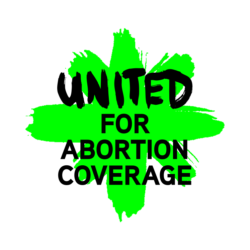
We were both thrilled and relieved in June when the Court issued its ruling striking down the Texas abortion restrictions in that case. But the truth is, there is much left to be done. Even if the courts stop states from running clinics out of existence, access to abortion is still out of reach for many who need it due to decades-old restrictions on the use of insurance coverage like Medicaid and other federal programs.
The Hyde Amendment, which turns 40 on Friday and bans the use of federal Medicaid funds for most abortions, as well as copycat policies affecting other health programs like those for women in federal prison or immigration detention centers, cruelly subject those enrolled in those programs to often insurmountable economic barriers if they need to end a pregnancy. Collectively these policies disproportionately affect those who are low-income, people of color, young, immigrants, or live in rural communities. In fact more than half of the women subject to the Hyde Amendment are women of color. When someone is living from paycheck to paycheck, denying coverage for an abortion can push them even deeper into poverty.
Through our #RuralPride campaign, we at NCLR have visited numerous rural LGBTQ communities over the past two years, to lift up the voices and hear the concerns of those in our community who choose to make their homes in rural America. We hear consistently that health care access is one of the top challenges facing LGBTQ people in these communities. Those who have to navigate intersecting barriers to economic security, such as poverty, racism and homophobia, should not have additional burdens placed on them through politically motivated intrusions into their health care and their personal and family decisions. Health insurance is vital to everyone’s health and economic security, and coverage should be based on medical needs, not subject to restrictions and limitations based on the ideology of some elected officials.
Rep. Henry Hyde was explicit 40 years ago when he first proposed banning the use of federal Medicaid funds to cover abortion care for women enrolled in the program. While he would have blocked access to abortion for all women were it in his power to do so, he settled for targeting those who depend on our nation’s health insurance program for low-income people, effectively stripping them of a right guaranteed by the Constitution by rendering it financially out of reach. Justice Thurgood Marshall, when he dissented in a U.S. Supreme Court case upholding the Hyde Amendment, said: “In this case, the Federal Government has taken upon itself the burden of financing practically all medically necessary expenditures. One category of medically necessary expenditure has been singled out for exclusion, and the sole basis for the exclusion is a premise repudiated for purposes of constitutional law in Roe v. Wade. The consequence is a devastating impact on the lives and health of poor women. I do not believe that a Constitution committed to the equal protection of the laws can tolerate this result.”
LGBTQ people know all too well the effects of health care discrimination, having only this year obtained express federal legal protections against many of the practices of health insurers and providers that have denied to us urgently required care. Just as those who cannot obtain Medicaid coverage for a needed abortion will often be unable to get that needed care, so have insurance denials served as barriers to transgender individuals obtaining gender-confirming and other necessary medical care. When health care that is essential to exercising one’s full bodily autonomy and living an authentic life is effectively denied through selective and discriminatory insurance coverage—whether that insurance is obtained in the private market or through a government program for which one qualifies—it is an assault on basic dignity. We in the LGBTQ movement must work to ensure that one day soon, we can relegate the Hyde Amendment and policies like it to history, when its harmful and discriminatory effects will be but a deeply regrettable memory.
